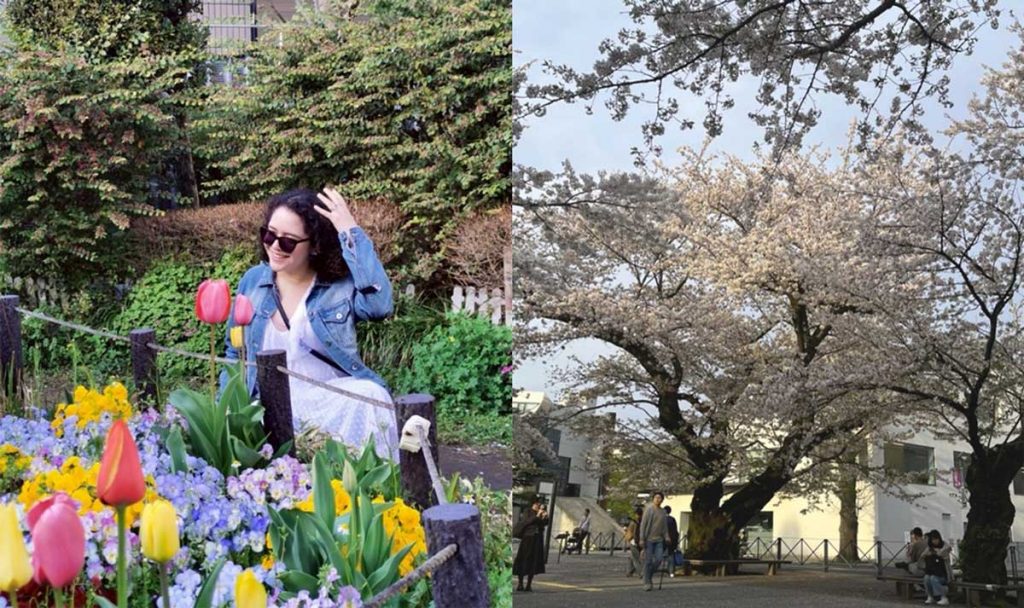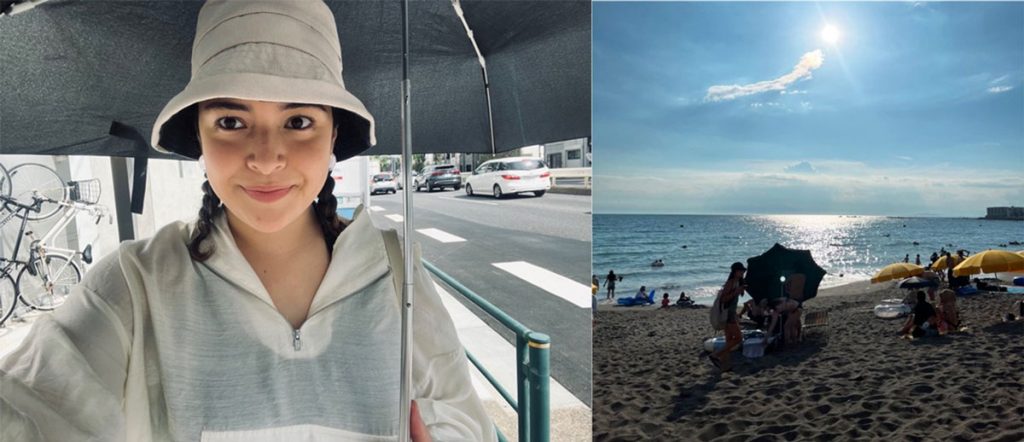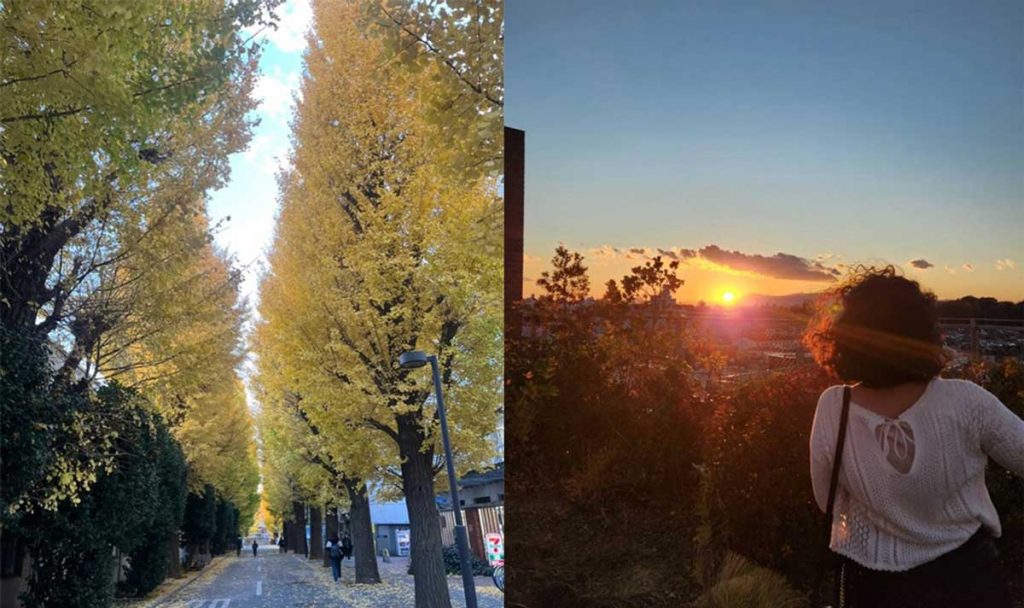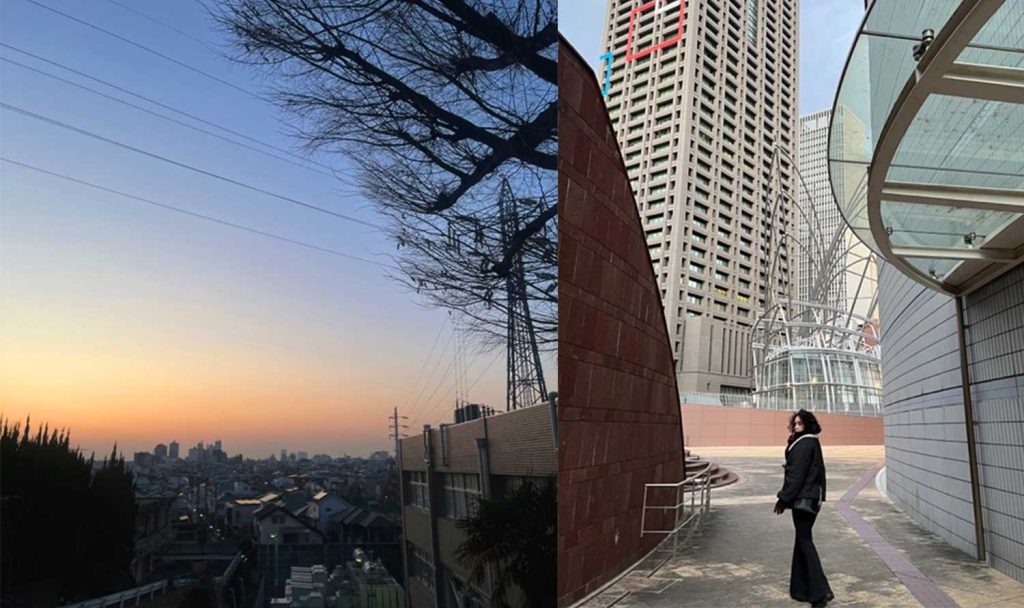Growing up in Bogota, Colombia – a cold-weather city in a tropical country – meant being able to wear the same clothes year-round, use the same appliances whenever I wanted, and even not having to change my lifestyle. I must admit that when I arrived in Japan, I made the small mistake of downplaying the impact that the seasons have on our way of life, so I’ve decided to create this short but succinct guide about the changes we should keep in mind to live peacefully and enjoy life in Tokyo, always from the perspective of a student on a budget. I’ll go season by season, highlighting tricks for your home, your closet, your diet, and even your health. I hope it’s helpful!
‘Cause no winter lasts forever: it’s cherry blossom season, it’s spring!

Spring: probably the most popular season in Japan, and it makes perfect sense. During the months of March, April, and May, flowers bloom, the greenery begins to reappear, and temperatures rise to milder levels, inviting us to feel more comfortable and not wear as many layers as in winter. However, with spring also comes rain and pollen allergies. So, let me give you a couple of tips to help you enjoy this season:
- Clothing: Especially during March and early April, wearing a base layer and outer layer is necessary. Additionally, since rain is very common, it’s recommended to always have an umbrella or raincoat handy.
- Health: Back in my home country, I was never allergic to pollen; however, seasonal weather comes with a small bit of allergies for most people (Kafunsho). To prevent this, it’s recommended to wear a mask and even sunglasses during the peak of pollen season. And try not to rub your eyes — pollen is everywhere! If your allergies become bothersome, some people use antihistamines or decongestants. I usually buy eye drops and nasal sprays at drugstores. They usually cost around 700 yen and last the entire season if symptoms are mild.
- Your home: Spring is a simple season where you can gradually stop using your heater and store your coats and thermal clothing. It’s important to store your clothes in a dry, dark place to prevent summer from wreaking havoc on the fibers. My recommendation is always to go to your nearest 100-yen store and buy clothing storage bags, along with moisture-repellent or dehumidifying packs and mothball sachets, which will prevent certain insects from feasting on your clothes while they’re stored.
Yeah, it’s humid, yeah, it’s very hot: it’s summertime!

Spanning the months of June, July, August, and September, summer is undoubtedly the season that has surprised me the most since I arrived in Japan. If you come from a city with a cold climate like I do, the concept of humidity, heat, and all kinds of insects may make you a little uncomfortable, but don’t worry! I’ll show you some ways to handle this season so you can enjoy your life in Tokyo.
- Clothing: During the summer, my main recommendation is to wear comfortable clothing made of breathable materials. Especially on the sunniest and hottest days, I learned that wearing light, long-sleeved shirts help a lot. Not only does it protect your skin from the harsh sun, but it also helps you feel cooler. Likewise, among the accessories I recommend for dealing with the hottest summer days are an umbrella or parasol, a sweat towel, and a portable fan. All of these can be found at 100-yen stores, if necessary.
- Health: Taking care of your mental and physical health during the summer is vitally important. Remember to drink enough water or mugicha (barley tea) every day, and on days when you have to walk for long periods, bring electrolyte-replenishing drinks like Pocari Sweat or Aquarius. As for your mental health, many of us experience exhaustion due to the constant heat and humidity, but the city (and outskirts) offers a number of activities you can attend with friends, such as summer festivals and hanabi (fireworks). My personal favorite? A daytrip with to the beach – it’s just a train ride away. Community is always important in times when we’re all feeling tired!
- Your home: As I mentioned before, my concept of humidity was pretty banal before coming to Japan. Since then, I’ve learned that it’s important to buy dehumidifying products for your closet. Also, if you live in an old building, the dreaded cockroaches (the G’s, as they call them here) will appear during the summer. For this reason, I recommend maintaining a good cleaning regimen and, if possible, purchasing pest repellent to keep them out of your home. Finally, this year, the Tokyo city government decided to cut water and sewage usage fees during the summer months, reducing the charge by almost half. The goal: to encourage people to use their air conditioners without worrying about extra costs, and I must admit, it was an excellent strategy. With this in mind, and always thinking about efficiency, I discovered that using your AC in “dry” mode with “swing mode” enabled, at a temperature between 23 and 27 degrees, can turn your room into an oasis for those days when going out isn’t an option.
Foliage you’ve never seen before: it’s autumn!

Easily my favorite season. During the fleeting months of October and November, Autumn brings otherworldly sunsets, movie-worthy fall foliage, and the ideal temperatures for hanging out with your friends and enjoying Tokyo. Like spring, this season doesn’t bring many lifestyle changes, but I’ll leave you with a couple of tips.
- Clothing: As the temperatures drop, it’s time to put away your summer clothes and pull out a couple of sweaters and pants. Since the clothes have been stored for a few months, I always recommend letting them air out, either by hanging them on your balcony or in your room for at least a day. Additionally, and particularly this year due to the La Niña phenomenon, rain has been constant, so it never hurts to pack an umbrella.
- Health: As the cold weather approaches, it’s important to maintain a balanced diet and lead an active lifestyle. Running or walking has become very popular lately, and I highly recommend it. Whether you’re near the Ookayama or Suzukakedai campus or the Odaiba dorms, you’re sure to find beautiful views to complement your exercise routine.
- Your home: With the arrival of autumn, we can finally turn off our air conditioning for a while. Many doctors recommend using this time to give your air conditioning a quick cleaning (even if only superficial) to prevent dust and mold buildup. I always recommend checking your AC’s manual and using online forums to make it a quick and easy process.
The air is crisp, the mountains are white, winter is here!

The seasons in Japan can be surprising. One day you’re wearing just a sweater, and out of nowhere, the winter switch flips, and the real cold arrives. For this, during the months of December, January, February (and maybe a bit of March), you must wear layers and conserve energy. Let me give you a few tips, as a cold-weather veteran.
- Clothing: Although temperatures rarely drop below freezing in Tokyo, it’s recommended to wear layers during winter. Many stores like Uniqlo, GU, or SHEIN sell base layers that allows you to have some insulation to go out and continue with your life without any problems. I also recommend going to secondhand stores like 2nd Street or TreFacStyle, where you can find coats and sturdy garments of excellent quality at good prices. Likewise, one of the keys to reducing the feeling of cold is to cover your wrists, ankles, and ears, since these are sensitive and susceptible parts of our bodies. You can also find “hand warmers” in drugstores (small packages you can rub together and put inside your gloves), which are great for keeping warm.
- Health: The winter months bring with them short days and long nights, an issue that can affect some people’s mental and physical health, especially when there isn’t as much sun. For this reason, doctors recommend including foods rich in vitamin D and magnesium in our diet or taking supplements (something quite popular in Japan). Enjoy some delicious soup, ramen, or noodles accompanied by hot tea for a healthy winter!
- Your home: Most dorms and apartments in Japan are not thermally insulated, so during the colder months, it’s recommended to turn on your AC unit’s heating mode or purchase a small space heater, especially for the evenings. I personally tested which method was more energy-efficient and discovered that using my AC unit’s heating mode saved me considerably more energy and, therefore, money.
For many people, this information may already be part of their daily lives, but I’m sure many international students aren’t used to the changing seasons and the many mood swings and routines that they entail. I hope this little guide will help you lead a peaceful life in Tokyo, regardless of the weather!
